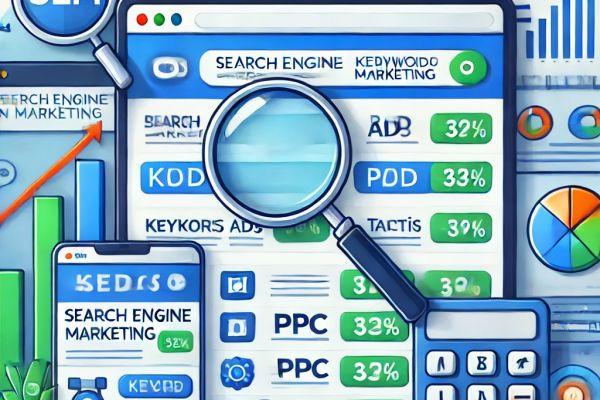Dscover the evolving world of digital marketing, its latest trends, challenges, and future predictions. Learn how to adapt to changes and thrive in a competitive landscape.
Digital marketing has revolutionized the way businesses interact with their audiences. Unlike traditional marketing methods, digital marketing leverages online channels to engage consumers in a more targeted and measurable way. From the rise of search engine optimization (SEO) to sophisticated artificial intelligence (AI) tools, this field has undergone a tremendous transformation. As we look ahead, the future of digital marketing holds even more promise, with emerging technologies and changing consumer behaviors shaping its path.
This article dives deep into the key components, trends, challenges, and predictions for digital marketing in the coming years.
Key Components of Digital Marketing
To understand the future of digital marketing, we must first explore its foundational elements:
1. Search Engine Optimization (SEO):
SEO ensures websites rank higher on search engines, driving organic traffic. Techniques such as keyword optimization, technical SEO, and local SEO are critical in a competitive landscape.
2. Pay-Per-Click (PPC) Advertising:
PPC platforms like Google Ads offer businesses an opportunity to reach their target audience instantly.
3. Content Marketing:
Blogs, videos, infographics, and ebooks help brands establish authority and engage their audience effectively.
4. Email Marketing:
Despite being one of the oldest forms of digital marketing, email remains a powerful tool for nurturing leads and retaining customers.
5. Social Media Marketing (SMM):
Platforms like Facebook, Instagram, LinkedIn, and TikTok provide businesses with opportunities to build communities and foster brand loyalty.
6. Affiliate and Influencer Marketing:
Partnering with affiliates or influencers allows brands to leverage third-party credibility.
7. Mobile Marketing:
With mobile users dominating the internet space, SMS marketing, push notifications, and app-based ads have become essential strategies.
Current Trends in Digital Marketing
1. Personalization:
Consumers expect tailored experiences. Dynamic content that adjusts based on user preferences is key.
2. Automation Tools:
Marketing automation platforms like HubSpot and Mailchimp streamline repetitive tasks, enabling businesses to focus on strategy.
3. AI-Powered Analytics:
AI tools like ChatGPT analyze vast amounts of data to predict trends and optimize campaigns.
4. Voice Search Optimization:
Smart assistants like Alexa and Google Assistant are driving demand for voice-optimized content.
5. Video Marketing:
Platforms like YouTube, TikTok, and Instagram Reels emphasize short-form, engaging videos.
Technological Advancements Impacting Digital Marketing
1. Artificial Intelligence:
AI powers chatbots, predictive analytics, and hyper-personalization.
2. Augmented Reality (AR) and Virtual Reality (VR):
Brands use AR/VR to create immersive experiences, such as virtual product trials.
3. Blockchain for Advertising:
Blockchain ensures transparency in digital advertising, reducing fraud.
4. 5G Connectivity:
Faster internet speeds enable more interactive and data-heavy marketing campaigns.
Future Predictions for Digital Marketing:
1. Metaverse Marketing:
Virtual worlds will open new avenues for branding and customer engagement.
2. Interactive Content Growth:
Quizzes, polls, and gamified content will become mainstream.
3. IoT Advertising:
Smart devices will offer hyper-contextualized advertising opportunities.
FAQs on Digital Marketing and Its Future
1. What is the future of digital marketing?
The future lies in personalization, AI-driven insights, and immersive technologies like AR and VR.
2. How is AI shaping digital marketing?
AI enhances analytics, personalization, and customer engagement.
3. Why is personalization important?
Personalization builds stronger connections, fostering loyalty and trust.
4. What role will the metaverse play in marketing?
The metaverse provides a new platform for interactive and immersive brand experiences.
5. How can businesses adapt to future changes in digital marketing?
By staying agile, investing in new technologies, and understanding consumer behavior shifts.
6. Is digital marketing sustainable?
Yes, especially with trends like green marketing and reduced paper-based advertising.
Digital marketing is a dynamic field that evolves alongside technological advancements and consumer expectations. By embracing change, leveraging data-driven insights, and adopting innovative tools, businesses can stay ahead of the curve. The future promises a blend of personalization, automation, and immersive experiences, ensuring a brighter outlook for both marketers and consumers.








